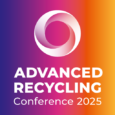BUSS ChemTech AG is a developer and supplier of proprietary technologies to many sectors of the chemical industry including the chemical recycling of waste plastic. Its patented pyrolysis-based recycling technology features truly continuous operation, minimal residence time and highly efficient and controlled transfer of heat to the molten polymer to maximize oil yield and quality. From its headquarters and technical center in Pratteln, Switzerland, the company serves geographic markets worldwide. Originally stemming from Albert Buss & Cie., founded in Basel in 1884, BUSS ChemTech AG became part of the Ballestra Group in May of 2021.
For more information, visit http://www.buss-ct.com
